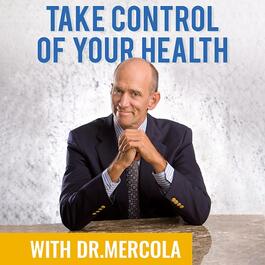
Dr. Joseph Mercola - Take Control of Your Health
Listen to Dr. Mercola's Weekly Podcast, as the legendary natural health pioneer continues to lead you on your journey towards optimal health.
Show episodes
An animal study found that the smell of fatty foods during pregnancy and breastfeeding, even without eating them, can alter a child's brain development and make them more prone to obesity later in life Mice exposed to bacon-scented diets in the womb and through milk developed insulin resistance and gained more weight i
Kimchi, a traditional Korean fermented vegetable dish, is rich in diverse lactic acid bacteria, bioactive compounds, and fibers that support gut integrity, microbial balance, immune signaling, and overall metabolic resilience A recent study published in npj Science of Food used single-cell RNA sequencing to map how dai
Your circadian rhythm controls vital organ functions, including how your liver processes nutrients and filters toxins. Exposure to artificial blue light disrupts this rhythm, triggering a chain reaction that destabilizes liver health German researchers found that long-term artificial light exposure alters liver gene ex
In a recent study, 71% of chronic fatigue syndrome (ME/CFS) patients tested had abnormal breathing patterns like hyperventilation or dysfunctional breathing, which were not seen in healthy controls Dysfunctional breathing was found in 42% of ME/CFS participants, leading to erratic, inefficient breathing during exertion
Americans spend about nine hours sitting and nearly five hours on their phones daily, contributing to a sedentary way of life In a featured study presented at the Radiological Society of North America (RSNA), researchers found that muscle shape, not size, may reveal early metabolic changes and even signal disease risk
Ultraprocessed foods alter DNA methylation patterns, silencing protective genes and activating harmful ones, creating cellular dysfunction that begins before visible health problems appear in both adults and children A study of 30 adult women revealed those consuming 45% of their daily calories as ultraprocessed foods





